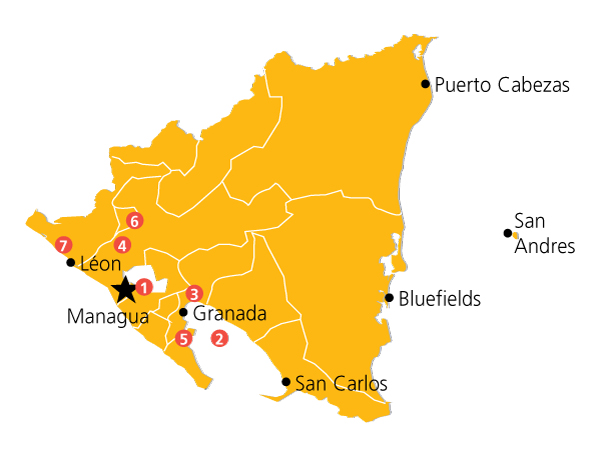 Nicaragua is a beautiful country filled with breathtaking natural beauty as well as rich history and culture. One visit will not be enough to experience all the amazing facets of this country. It is one of the safest countries in Latin America to travel to with immense diversity.
Nicaragua is a beautiful country filled with breathtaking natural beauty as well as rich history and culture. One visit will not be enough to experience all the amazing facets of this country. It is one of the safest countries in Latin America to travel to with immense diversity.
Many travel to the tropics to see its rich flora and fauna. Nicaragua is just now being discovered as a land of great nature reserves. The nature is nothing new it has just been a well kept secret. The two largest forest reserves in Central America are found in Nicaragua and they are part of 78 national nature reserves that cover almost 22% of Nicaragua’s territory.
If you’re looking for the ultimate place to soak up the sun and enjoy the cool tranquility of water, look no further than Nicaragua as they have an unbelievable 200 mile stretch of beaches on the Pacific coast.
Nicaragua has unique forms of dance, music and festivals, but most of all Nicaragua’s culture, breaths poetry, the unrivalled national passion. Nicaragua is also the only country in the region with 2 beautiful colonial cities: Granada and Leon.
Nicaragua’s food is amongst the finest in Latin America with a premium put on fresh ingredients and generous servings. In addition to the numerous fresh fruits that one expects in the tropics, grilled meats and fresh fish are complimented by locally made cheeses, vine-ripened vegetables, handmade tortillas, fruit drinks, local beers and Nicaragua’s famously smooth rum.
Religion is a significant part of the culture of Nicaragua and is dominated primarily by Roman Catholicism. Religious freedom, however, which has been guaranteed since 1939, is promoted by both the Nicaraguan government and the constitution.
While most Latin Americans are known to prefer soccer, Nicaragua is marked for its strong enthusiasm for baseball. In fact, Nicaragua has produced a number of famous professional baseball players, including Dennis Martinez, who remains as the only player from a Latin American country to have thrown a perfect game in the Major Leagues.
The fact that Nicaragua has not been overrun by tourists means that it is a place where the visitor can enjoy both the nature and culture of Nicaragua at a relaxed pace and in a unique environment.
We can customize all of our trips to create a personal and memorable trip that suits your refined tastes.


